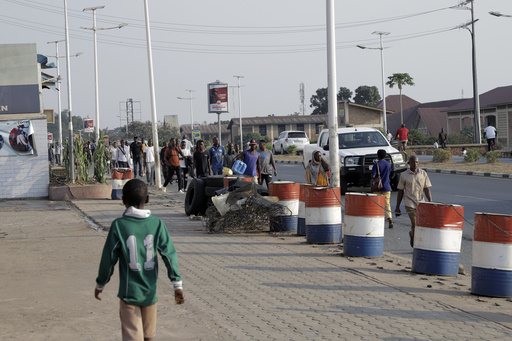BUJUMBURA, Burundi (AP) — Burundi seems to be running short of everything but patience.
A deadly nationwide political crackdown in the East African nation is now in the past. But the return to international favor, and benefits like development assistance that come with it, has been slow. As always, everyday citizens feel it most.
It’s never been easy in landlocked Burundi, which at times has been described as the world’s poorest country, according to United Nations figures.
The list of commodities in short supply in recent months has ranged from fuel to sugar. But an electricity shortage is hitting the hardest, slowing attempts at economic recovery.
Power outages occur every day, often for more than two hours at a time, unusual even in a region where many governments struggle to meet electricity demand.
The years of being relatively offline from some key international partners have taken a toll. Current President Evariste Ndayishimiye has vowed reforms, and slowly, partners like the European Union and United States have eased sanctions.
Burundi has been on a path of relative stability. In January, the World Bank announced a new grant of up to $40 million to help the government avert acute commodity shortages. The project focuses on improving the credibility of Burundi’s financial system.
Also in January, however, complications arose. Burundi closed its border with Rwanda, accusing its neighbor of backing rebels, which Rwanda denied. Burundian authorities have said the border closure is not responsible for the widespread commodity shortages as most trade comes in via Congo, but an important trading partner has been affected.
Burundi has few exports and is heavily reliant on donor support, making its international relations key.
Residents say the most pressing issue to address these days is the unreliable power supply, which can shut down business across the country for hours on end.
From hospital administrators to hoteliers, Burundians told The Associated Press they are losing money — and the government will, too, when it’s time to collect taxes.
In Ngozi, a town in northern Burundi, hairdresser Anicet Manirambona spoke with frustration about electricity cuts in the middle of doing someone’s hair.
“It can take several hours,” she said. “Angry, the customer decides to leave and will never come back again.”
Some businesses have invested in generators but struggle to find fuel to power them. The supply of petroleum products has been sporadic this year, mostly blamed on foreign currency shortages.
“We are sometimes forced to temporarily interrupt our programs because of the power cut when it is not as easy to obtain fuel to power the generator,” said Bénigne Magendero, director of the Ngozi-based Radio Buntu.
Burundi’s installed electrical capacity stands at about 115 megawatts, and less than 15% of the country’s 12 million people are connected to the national grid, according to official figures.
The country’s 10-year development plan until 2027 says 400 megawatts are needed to meet industrialization goals.
Government authorities blame the power outages on obsolete equipment that dates to the 1960s.
A new hydroelectric power plant under construction in the northwestern province of Cibitoke would add 20 megawatts to the national grid. Two more hydroelectric power plants under construction would add a total of 76 megawatts to the grid when they are commissioned later this year, according to the state-owned utility company known as Regideso.
“When we launch our business, our first priority is to satisfy our customers,” said Evariste Hakizimana, the director of a printing company in the commercial capital of Bujumbura. The erratic power in Burundi “has an impact on the reputation of the company.”
___
The Associated Press receives financial support for global health and development coverage in Africa from the Bill & Melinda Gates Foundation Trust. The AP is solely responsible for all content. Find AP’s standards for working with philanthropies, a list of supporters and funded coverage areas at AP.org.
This website uses cookies so that we can provide you with the best user experience possible. Cookie information is stored in your browser and performs functions such as recognising you when you return to our website and helping our team to understand which sections of the website you find most interesting and useful.
